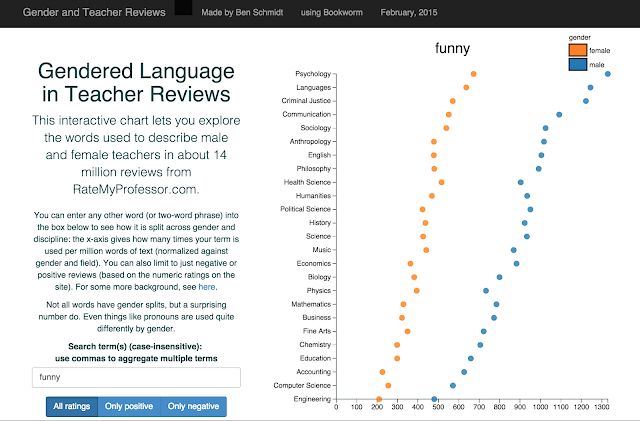Source: www.theguardian.com/education/2015/feb/24/sexism-women-in-university-academics-feminism
Quotes:
“Our universities are highly sexist institutions. Women are outnumbered and relegated to junior posts. More than 60% of academics are men, and about 80% of professors. Official statistics show that more women are on temporary contracts than men.”
“Behind the numbers lie depressing examples of everyday sexism. … A new survey by the Royal Historical Society (RHS) shows that female academics,… are exploited and marginalised by “macho practices and cultures”.”
“not that women are somehow less able to cope when aggressive behaviour is aimed at them… It is rather that aggressive behaviour can heighten women’s feeling that they do not belong, by reinforcing the masculine nature of the environment within which they work and study.”
“When women do engage in combative debate …, we receive no kudos: what is assertive in a man is arrogant in a woman. … many academic men can’t deal with female equals.”
“Increasingly, universities fail to advertise prized permanent academic jobs, simply filling the post with their favoured candidate – invariably a man. … lazy stereotyping means men are assumed to be “brighter” than women; assertive polemic is taken as evidence of intelligence.”
“As one woman complained, “I have been asked if I was married, while my colleagues have been asked what they think”. I’ve lost count of the number of times I’ve been asked by male academics have asked me if I have children. My husband, also a university lecturer, can’t recall ever being asked this.”
“… the RHS survey found that many women “get stuck mid-career”, often overburdened with administrative tasks.”
“Most men questioned by the RHS regard their university’s gender equality policies as “good”, but most women consider them “poor”.”










